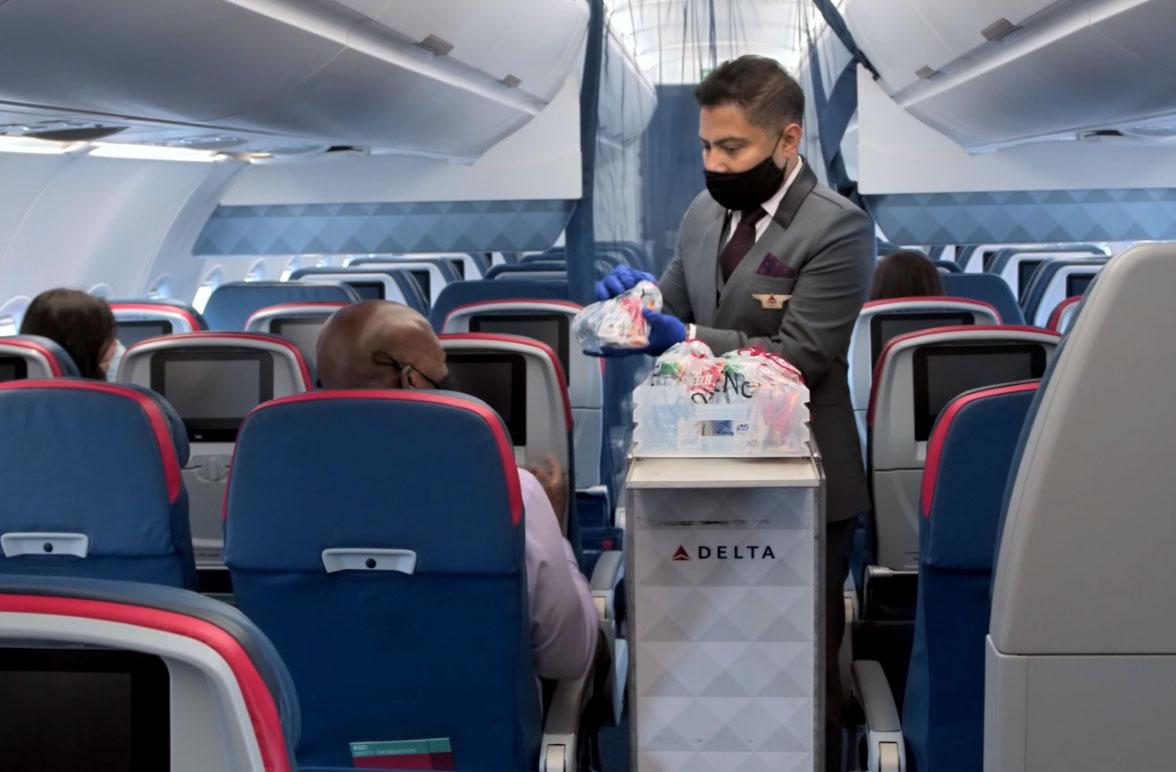Delta Air Lines To Avoid Furloughs For Flight Attendants, Ground Staff

Delta Air Lines CEO Ed Bastian pledged that flight attendants and ground staff will completely avoid involuntary furloughs this fall, although cuts remain on the table for nearly 2,000 pilots.
The announcement comes just two weeks before the U.S. federal government’s Payroll Support Program (PSP) is set to expire Sept. 30, prompting carriers to ready tens of thousands of collective job cuts beginning Oct. 1.
In a Sept. 15 staff memo, viewed by Aviation Daily, Bastian credited the decision not to furlough flight attendants or ground workers to better-than-expected uptake in voluntary payroll-reduction initiatives, which has allowed the company to “effectively manage our staffing between now and the start of peak Summer 2021 travel.”
Bastian reported that 40,000 Delta employees have agreed to short and long-term leaves of absence, while 17,000 workers have permanently exited. The Atlanta-based company has also offered staff a variety of workgroup-specific schemes, such as allowing flight attendants to support catering operations or work alternating months, as well as a 25% mandatory hours-reduction program for all ground workers.
“Avoiding involuntary furloughs in this unprecedented environment is entirely due to the innovation, hard work and shared sacrifice of our people,” Bastian said. “Our teams have done an extraordinary job identifying opportunities to spread work around and shift people into new roles that are essential to our business.”
Despite the good news, however, Bastian revealed that management still expects “an overage” of pilots this fall. While talks with the Air Line Pilots Association are ongoing, he said furloughs may be inevitable unless the U.S. Congress agrees to extend the PSP until March 31, 2021.
Delta originally warned 2,258 pilots of potential furloughs in June, although its estimate was later revised down to 1,900, based on improved participation in the voluntary measures. The furloughs would be in addition to 1,800 pilots that already agreed to early retirement, leaving the company with an estimated 11,200 total pilots unless more aid is secured, according to a recent report from Raymond James analysts.
The bright side for Delta is that its worst-case plan to remove 1,900 pilots pales in comparison to mass furloughs previewed at its two main rivals—American Airlines and United Airlines—which plan to shed 16,000 and 19,000 workers, respectively, beginning Oct. 1. Southwest Airlines, by contrast, has committed to completely avoid furloughs through year-end, while the scope of cuts at Alaska Airlines and JetBlue Airways has not yet been finalized.
While airlines are holding out hope that the PSP will be extended as part of a larger budget deal that Congress must pass by Sept. 30, Bastian conceded that such prospects appear increasingly “uncertain,” in light of continued gridlock between Republican and Democratic lawmakers.
The Raymond James analysts said they expect the likelihood of a PSP extension will ultimately depend on the size of the funding and relief package agreed to by lawmakers. If a bill is passed that is closer to $2 trillion, they see a “high likelihood” of more airline relief. If it is closer to $1.5 trillion, however, they expect support for the sector is “more likely to get squeezed out.”

